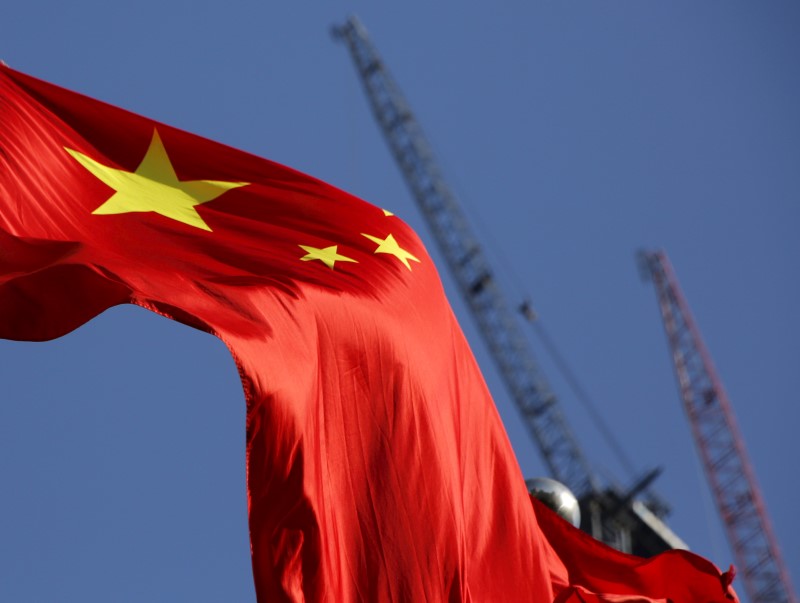Gold bars to be exempt from tariffs, White House clarifies
By Gina Lee
Investing.com – China’s economy continued its slowdown in January 2022, with manufacturing output falling and the latest COVID-19 outbreaks limiting consumer spending. Smaller businesses bore much of the pain, with a private survey focusing on smaller, export-oriented firms falling below the 50-mark indicating growth.
Data released by the National Bureau of Statistics on Sunday showed that the manufacturing purchasing managers index (PMI) was 50.1. Forecasts prepared by Investing.com predicted a 50 figure, and the index was at 50.3 in December 2021.
The non-manufacturing PMI was 51.1, lower than the previous month’s reading of 52.7.
The slowdown added to other tailwinds that the Chinese economy faces, including falling home sales and the latest COVID-19 outbreaks that led to travel restrictions and lockdowns in some cities. Authorities are aiming to stabilize the economy ahead of a key political leadership meeting later in the year, with the People’s Bank of China cutting interest rates and officials pledging more fiscal support earlier in the month.
“The weak PMI indicates the policy easing measures from the government have not yet been passed to the real economy,” Pinpoint Asset Management Ltd. chief economist Zhiwei Zhang said in a note.
“We expect the government will step up policy support in coming months, particularly through more fiscal spending.”
Meanwhile, the Caixin manufacturing PMI, also released on Sunday, was at 49.1. Forecasts prepared by Investing.com had predicted a 50.4 reading, while December’s figure was 50.9.
January and February as normally slow production periods due to the Lunar New Year holidays. In 2022, activity was also impacted by the government’s orders for steel plants to reduce output, aimed at reducing air pollution ahead of the Beijing Winter Olympics starting on Feb. 4.
Manufacturers also continued to see higher costs in January, with input prices rising at the fastest rate in three months. “That could drive the producer price index up and narrow the room for monetary policy,” China Renaissance Securities Hong Kong’s Bruce Pang told Bloomberg.
The downward pressure on the economy could continue in the near term, with restricted Lunar New Year holiday celebrations impacting consumption, while production also remains low, according to Bloomberg chief Asia economist Chang Shu.
“The authorities have made a sharp pivot to increase policy support. This should cushion the slowdown, but the impact may not be discernible until late in the first quarter after holiday-related distortions in activity have subsided.”
